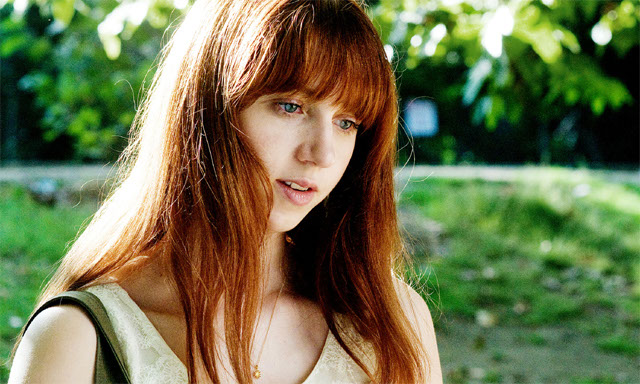
Film: Ruby Sparks
Country: USA
Year of Release: 2012
Directors: Jonathan Dayton and Valerie Faris
Screenwriter: Zoe Kazan
Starring: Paul Dano, Zoe Kazan, Annette Bening, Antonio Banderas, Chris Messina, Steve Coogan
♥♥♥♥
Little Miss Sunshine (2006) is one of my favourite films from the last decade. Which is not to say that I think it’s one of the finest films from the period – sometimes personal taste and resonance can overpower critical discernment – but it’s deep sense of humanity combined with an absurdist hilarity warms my heart just thinking about it. Ruby Sparks, the second outing from talented directing team Jonathan Dayton and Valerie Faris, far exceeded my expectations, fully satisfying my critical faculties while maintaining the warmth and idiosyncratic intelligence of their debut.
Calvin Weir-Fields (Paul Dano) is a best-selling novelist who has produced a contemporary American masterpiece at the age of 19, but whose prodigal success haunts him almost as much as his inability to engage with other people, particularly the female kind. Struck with writer’s block – he still uses an old-school typewriter and the terror of the blank page staring back at him will be familiar to anyone who’s ever tried to write a piece of fiction – Dano visits psychologist Dr Rosenthal (Elliot Gould), who advises him to produce a single page of writing, which can be as badly written as Calvin likes.
The young writer responds by writing about a girl from his dreams – his dream-girl really, the kind of prototypically kooky, off-the-wall character that is most recognisable not from real-life but from left-field indie films (this is done with clear intent by the filmmakers). Calvin soon becomes obsessed with the girl, who he names Ruby Sparks, and finds himself obsessed with writing her into fictional existence, and, as he acknowledges to his shrink, he has started to fall in love with her.
It’s certainly not unusual for a writer to fall in love with his or her protagonist – it seems likely that that obsessive relationship is often part of the creative process that drives fiction writing. And I imagine that it’s not usual for a character to become almost real in the writer’s imagination. But when the character walks into your living room, it’s pretty certain that your mind has taken you off to lala-land. Which is exactly what
Calvin thinks when he first sees Ruby (Zoe Kazan) wandering casually through the low-key opulence of his apartment. At first, he is completely thrown and, understandably, more than a little disturbed. But when he realises that other people can also see Ruby, that she is a flesh-and-blood woman who he has – somehow – written into existence, everything changes. He has found the girl of his dreams. She is his own perfectly imperfect creation, platonic literary realism turned flesh. When Calvin realises that she responds to whatever he writes, he stops writing about her – and in fact stops writing completely – in order to grant her something akin to free will.
And so begins a beguiling romantic comedy that nods with equal enthusiasm to the textured post-modernity of Charlie Kaufman, Michel Gondry and Spike Jonze, and to the old Hollywood romances of Katharine Hepburn and Spencer Tracy. The result is a moving meditation on both the power of love and the remarkable ability of fiction to give birth to beings who are, for all their essential ethereality, real in some profound and fundamental way.
For those who are particularly endeared to the work of the Kaufmans, Ruby Sparks might seem a little lite. For all its depth and substance, the film plays it remarkably straight. But by keeping its narrative relatively simple and linear, the film maintains a sense of control that many filmmakers in the meta-narrative genre relinquish.
With crisp writing from the multitalented Zoe Kazan, elegant but unobtrusive cinematography and a superb cast of big name actors including Annette Bening and Antonio Banderas, none of whom throw their dramatic weight around with any self-conscious vanity beyond that required by their roles, Ruby Sparks is a shimmering testament to the directorial talents of Dayton and Faris. Like their protagonist, they have been faced with the difficult job of producing a second major work after a much-loved and critically acclaimed debut. They have more than risen to the challenge and this charming and highly accomplished sophomore effort is a suggestion of even greater things to come.
© PETER MACHEN 2017